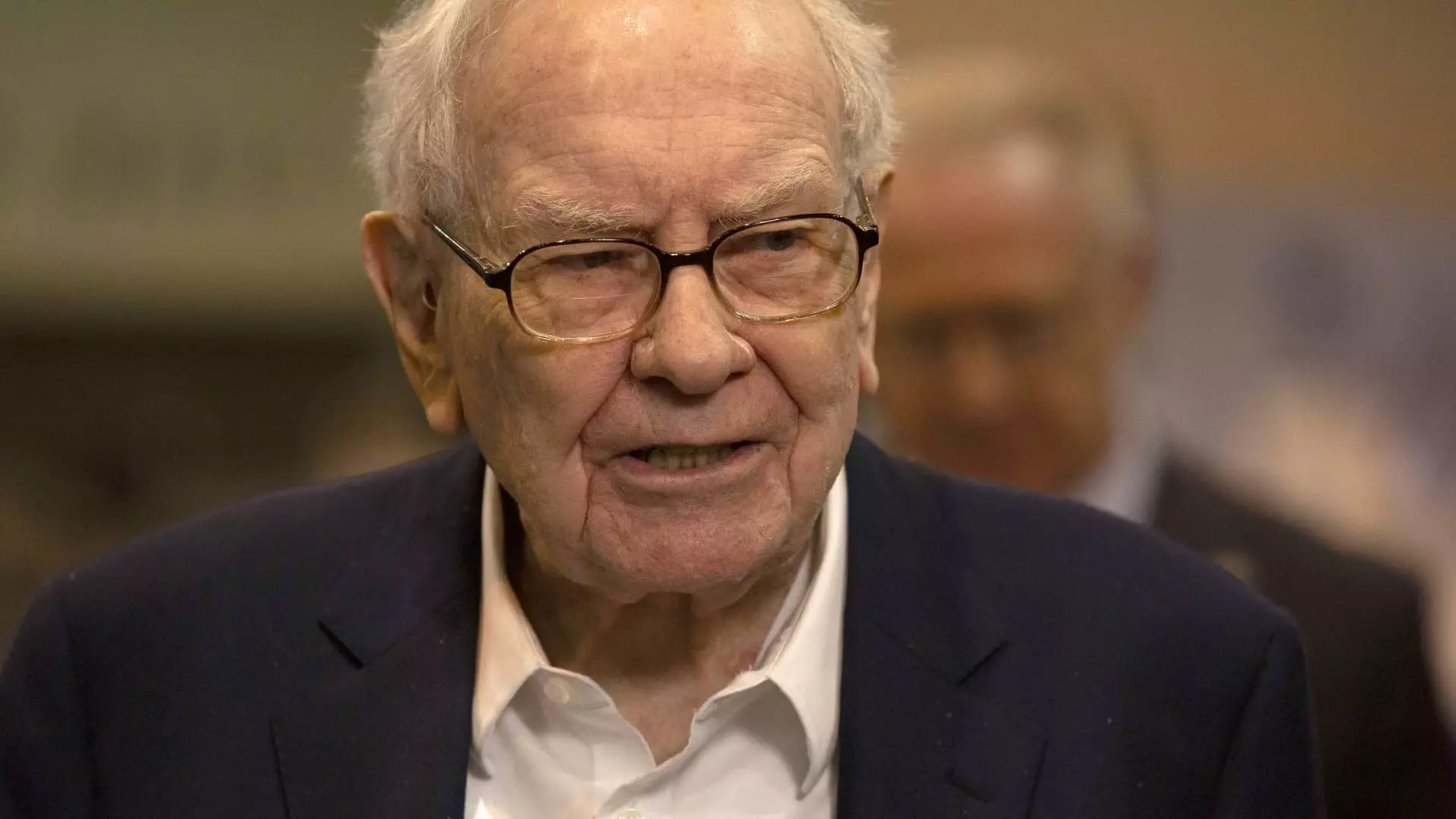The recent financial maneuvers of Berkshire Hathaway have attracted substantial attention in investment circles and beyond. The conglomerate, led by the esteemed Warren Buffett, has effectively curated a monumental cash reserve that has exceeded $325 billion as of the third quarter of the year. This unprecedented sum represents a strategic choice by Buffett as he has opted for selling key equity holdings rather than repurchasing company shares, raising questions about his economic outlook and investment philosophy in an increasingly volatile market.
Unprecedented Cash Reserves and Stock Sales
Berkshire Hathaway’s cash position swelled to a historic $325.2 billion, a notable increase from the already impressive sum of $276.9 billion recorded in the previous quarter. This growth is largely attributable to Buffett’s decision to sell portions of significant investments, most notably in tech giants like Apple and financial institutions such as Bank of America. Notably, during this quarter, Berkshire divested nearly a quarter of its considerable stake in Apple, marking four consecutive quarters of reducing this particular investment. Additionally, they have capitalized on their ownership in Bank of America, earning over $10 billion from shares sold since mid-July. Such moves indicate not just a reactive strategy but a calculated approach as Buffett positions the conglomerate for potential future investments or market opportunities.
Absence of Stock Repurchases
Despite the inflow of cash from stock sales, Berkshire Hathaway refrained from engaging in share buybacks during the third quarter, a stark contrast to their previous activities. This absence of stock repurchase activity aligns with the company’s guiding principle that repurchases should only occur when shares are undervalued according to Buffett’s intrinsic assessments. This year, the appetite for buybacks had already been diminishing, with only $345 million of stock repurchased in the second quarter compared to the much greater amounts of $2 billion seen in prior quarters. The decision to hold off on buybacks suggests a distinct shift in Buffett’s strategy, as he navigates a market that is performing well, with Berkshire shares increasing by 25% year-to-date, outpacing the S&P 500’s 20.1% return.
While Buffett’s sales strategies brought in meaningful capital, Berkshire’s operational earnings in the third quarter faced a decline, totaling $10.1 billion—a decrease of approximately 6% from the previous year. This downturn was primarily attributed to challenges within the insurance sector, which performed below expectations. Such operational results indicate that even with substantial cash reserves, the company’s core performance remains critical for sustaining long-term growth. Analysts had anticipated slightly higher figures, which raises questions regarding the overall health of the conglomerate’s diversified portfolio.
Buffett’s recent financial maneuvers cannot be viewed in isolation; they are influenced by macroeconomic conditions. After a year marked by a rebound in the stock market driven by optimistic economic forecasts, new challenges have emerged, such as rising Treasury yields and escalating fiscal deficits. Investors, including influential figures like Paul Tudor Jones, are beginning to express concern over the sustainability of the current economic trajectory, particularly with no clear plans from political leaders to curtail government spending or manage the growing deficit. Buffett has hinted that some of his selling activity may also be related to expectations of increased taxes on capital gains, suggesting a proactive rather than purely reactive investment strategy.
In the evolving landscape of finance, Berkshire Hathaway’s substantial cash reserves and strategic selling indicate an approach grounded in caution and foresight. Warren Buffett’s decisions resonate with his historical philosophy of patience and prudence, embodying the complexities of navigating an uncertain economic climate. Moving forward, investors will be closely monitoring not only the performance of Berkshire’s operational units but also how Buffett utilizes this colossal cash reserve to seize opportunities as they arise, all while understanding the risks posed by the prevailing economic conditions. This period of strategic selling and cash accumulation may position Berkshire for a new chapter once market conditions shift, but for now, it is a testament to the challenges and considerations faced by one of the most renowned investors in modern history.

Leave a Reply